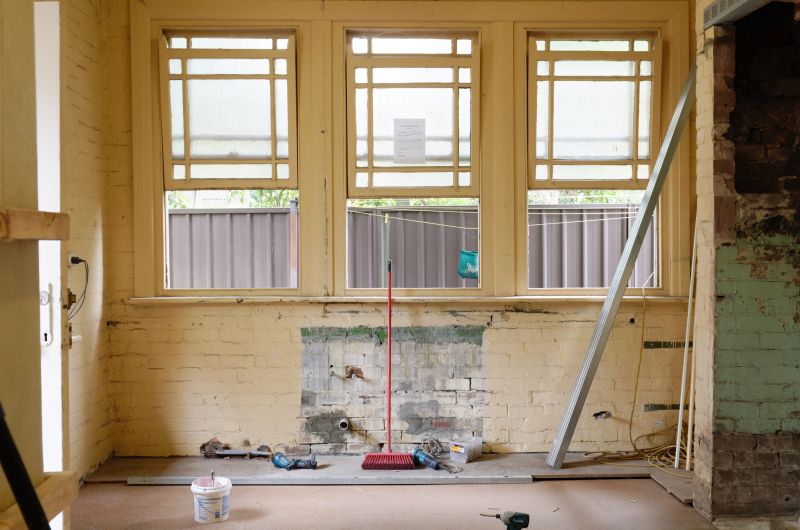What does the Fitness for Human Habitation Act mean for Landlords?
1st April 2020

Last year a long-awaited new law was introduced to protect tenants and their wellbeing. The Fitness for Human Habitation Act was created to prevent landlords from letting properties fall into unacceptable states of disrepair, whilst still continuing to charge rent to the unfortunate tenants who had to live in such properties. Sadly, there are still landlords out there that think it’s ok to let tenants live with an abundance of black mould, unsafe electrics, crumbling walls, collapsed ceilings or rotting wood and these shocking scenes are more common than any of us would like. Here at Oakley of course, like any reputable Lettings and Estate Agency, we are very conscious about the quality of properties we offer for rent and our Property Management teams are very vigilant in making sure appropriate repairs are taken care of quickly. We build strong working relationships with our landlords and are able to trust that properties are well-maintained. That being said we, fortunately, haven’t needed to be concerned about the change in law but we wholeheartedly support it and encourage its enforcement and encourage any tenants to speak up if they feel something’s not right. The law covered any new tenancies signed after 20th March 2019 that last less than 7 years. This year, in March, the law was thankfully extended to all existing statutory periodic tenancies in England. So, what does this mean for Landlords?
The Fit for Human Habitation Law can be flexible depending on the tenant
When we say flexible, we mean that what one younger tenant or fit and healthy tenants may be able to live with, an older or vulnerable tenant or tenants with young children may not. This puts a duty of care on the landlord to consider each property as a person’s home rather than just a number in a portfolio. For example, a little bit of fraying around the edges of a carpet may not be an issue for most, but for older tenants it could be a tripping hazard and for families it could be dangerous if the children are exposed to the threshold bar spikes on the floor. Another example might be that a tenant lives in a basement flat by the sea and experiences a very minor bit of damp in winter and is happy to adapt their routine to manage this and prevent it getting worse or damaging the property, for example keeping doors open or using extra ventilation or having to use a little extra force to open doors if they swell up. A fit and healthy tenant may not be concerned by this, but tenants with underlying health conditions or with children or pets might find this a problem.
How is the Fit for Human Habitation law enforced?
If something is affecting a tenant negatively, it’s generally down to the tenant to have an informal discussion with their landlord or managing first to explain the defect and how it affects them, so that the landlord can offer advice on managing a problem or make a repair if needed. However, Landlords should regularly inspect their properties and any communal areas to make sure there is nothing obvious that could cause a problem to the tenant later down the line, and to help tenants ensure that they’re not doing anything in the property that could be unsafe or cause damage that may cause them discomfort in the longer term – for example educating tenants about how mould forms, how to prevent leaks onto the ceiling, and so on. Landlords should always carry out a risk assessment around their properties each time they visit to make sure they’re safe for occupation – tenants may not always be aware something is a risk.
Tenants can make a complaint to their local council if they have not had success negotiating repairs with their landlord and still feel something in the property is affecting their wellbeing. The council can mediate between the landlord and tenant to discuss whether repairs are appropriate and agree timelines for these. Should a landlord fail to co-operate at this stage, the council will have authority to deem a property unfit for human habitation in extreme circumstances and the landlord will be fined. If a tenant feels the situation is too serious to wait for help from the council, they can take court action against the landlord without getting the council involved. More information can be found on the .Gov website
If you’re a Landlord and would like some support with ensuring your property is safe and Fit for Human Habitation, we can carry out an inspection on your behalf. Our Property Management team are very experienced in spotting common risk with properties and can also offer advice on repairs.
Archive
- Angmering (1)
- Brighton (32)
- Career Opportunities (1)
- Charity (2)
- Commercial property (23)
- Family living (28)
- Featured (35)
- Grand Designs (7)
- Head Office (5)
- Help to Buy (9)
- Holiday Letting (2)
- Housing market (50)
- Hove Enterprise Centre (1)
- Land opportunities (9)
- Letting (31)
- Lewes Branch (28)
- Life in Sussex (22)
- Meet the Team (14)
- New Build Homes (39)
- Property Finance (23)
- Property Management (13)
- Residential Sales (67)
- Seaford (2)
- Selling your Home (26)
- Shoreham (57)
- Sussex property (37)
- Sussex Property Market (45)